eCommerce has exhibited exponential growth in recent years, but it may not be the next big thing in online shopping. Mobile commerce, or simply mCommerce is taking over eCommerce, don’t be surprised if it entirely outshines shopping from PCs and laptops in the upcoming years.
To keep up with this trend, eCommerce businesses need to invest in mCommerce app development. Here’s an in-depth guide to mCommerce development for businesses.
Why Does mCommerce Matter in Your Business?
As per the current scenario, mCommerce can be defined as buying or selling products using a mobile device via a website or mobile app.
Before delving into the importance of mCommerce for your business, let’s look at a few stats indicating its importance.
- Global mCommerce sales will make up 72.9% of all eCommerce sales by 2021.
- 79% of smartphone users have made a purchase using their mobile device in the last six months.
- 67% of consumers have a retailer app installed on their smartphone.
- 77% of US consumers compare prices on mobile devices.
- The global mobile payment market is likely to reach $4.574 Billion by 2023, exhibiting a 33.8% CAGR during 2017-2023.
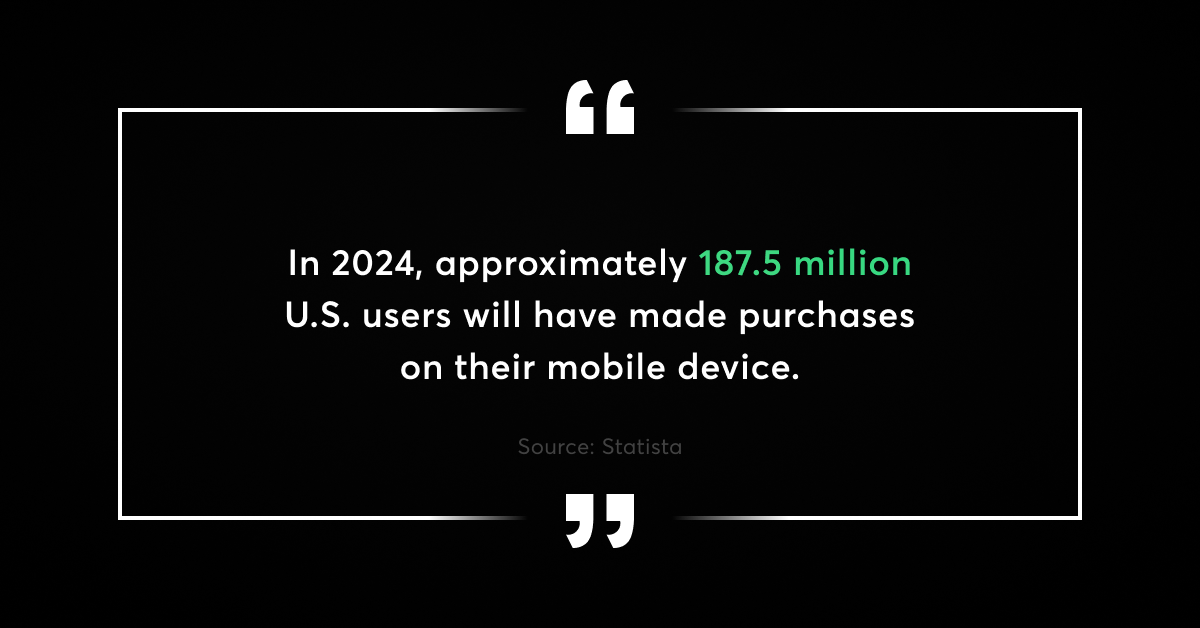
As the above statistics indicate the majority of modern-day customers shop online using a mobile device. Offering a mobile shopping experience can help you cater to a broader range of customers and, therefore, drive more sales.
Besides, mCommerce can also go a long way in boosting customer experience and setting your business apart in this hyper-competitive eCommerce landscape.
Benefits of mCommerce for Businesses
Let’s look at the key advantages of mCommerce for eCommerce businesses.
1. Better Customer Experience
Customer experience management has become the paramount priority for eCommerce companies, and rightly so. 96% of customers consider the experience to be the critical factor in their loyalty towards a brand.
As the competition continues to increase, unique, hassle-free, and personalized CX has become a major area of focus for companies. mCommerce apps help businesses boost customer experience.
By investing in mCommerce app development, you can provide a seamless eCommerce experience on mobile. Furthermore, mobile shopping apps are fast, interactive, convenient, and exclusive, thereby making shopping hassle-free.
2. Faster Purchases
Mobile devices have become an integral part of people’s lives. US adults spend around three hours on their mobile devices every day. Besides, a cell phone is easily accessible. All that consumers need to do is put their hands inside their pocket and pull out the device. Therefore, making purchases using a mobile device is quicker and easier.
3. Phenomenal Growth Potential
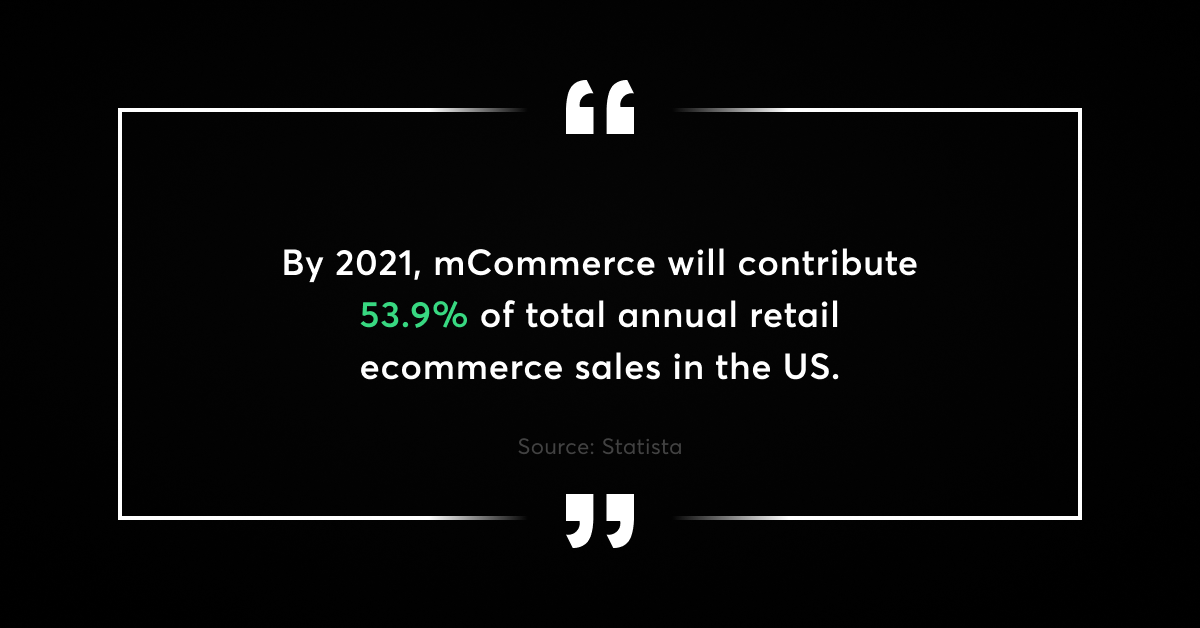
58% of Google search traffic in 2020 came from mobile devices, compared to only 38% in 2015. This surge, in addition to the growing share of mCommerce in eCommerce, indicates a massive growth potential for mobile commerce apps in the years to come.
Although mobile app development is on the rise, only 42% of small businesses have a mobile app. This means a large share of businesses still lacks mobile commerce capabilities. Therefore, offering mCommerce experience to your customers can provide you with a major competitive advantage.
4. Direct Connection to Customers
eCommerce businesses don’t have too many options to reach and connect with their customers. Email is an effective channel, but not many people check emails regularly, especially if they’re from brands. In most cases, the emails you send will end up in the “Promotions” mailbox.
On the other hand, a mobile app allows you to send push notifications. Mobile app push notifications can boost engagement rates by a whopping 88%. Moreover, they can increase app retention rates by three to ten times.
With push notifications, you can establish a direct connection with your customers, something that’s not achievable with email or a website.
5. Tailored Content
Mobile apps offer a greater scope of eCommerce personalization. You can collect data like age, gender, location, profession, app activity, purchase history, etc., to show tailored content and product recommendations to your users.
Data from Google shows that 63% of smartphone users are likely to purchase from a company whose mobile app or website shows relevant product recommendations. Thus, showing personalized recommendations and content can go a long way in generating more revenue for your business.
In addition, mobile app personalization can also promote customer experience, retention, brand awareness, and consumer loyalty.
6. A True Omnichannel Experience
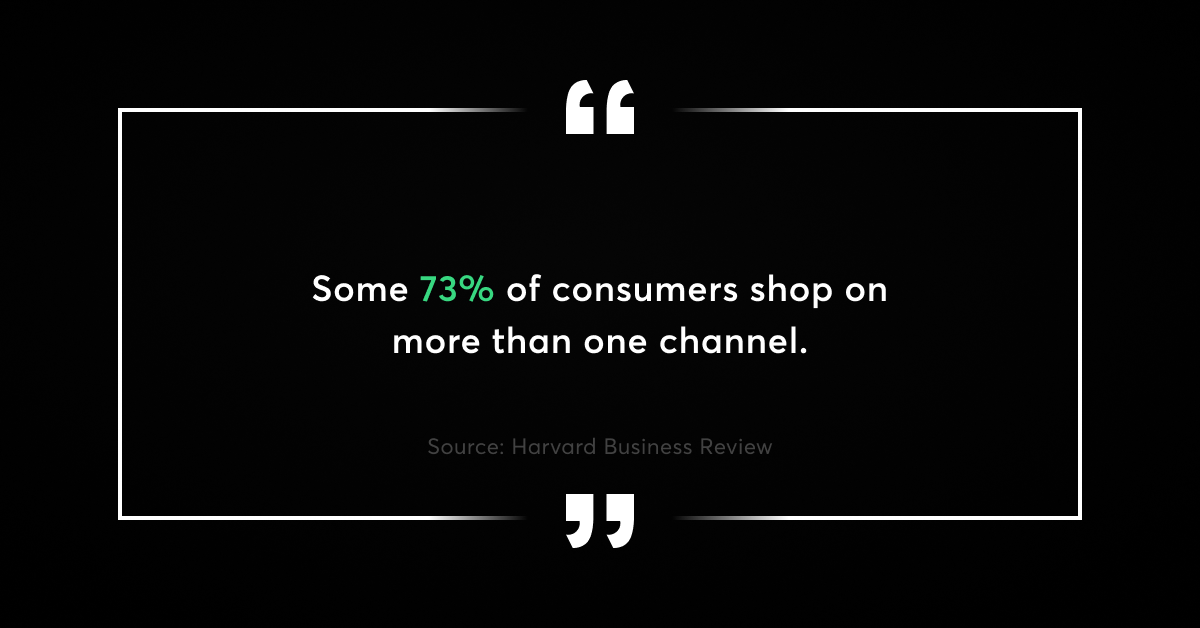
Data shows that businesses with omnichannel capabilities witness 91% higher y-o-y customer retention rates. When you invest in mobile app development, you create an Omni marketing channel for selling your products. As a result, you can achieve superior customer retention, turnover increase, and customer satisfaction.
Having an omnichannel strategy in place also allows you to collect more customer data and improve efficacy. In addition to selling more products, a new marketing channel lets you share the latest information and updates more seamlessly via push notifications.
7. Deeper Analytics
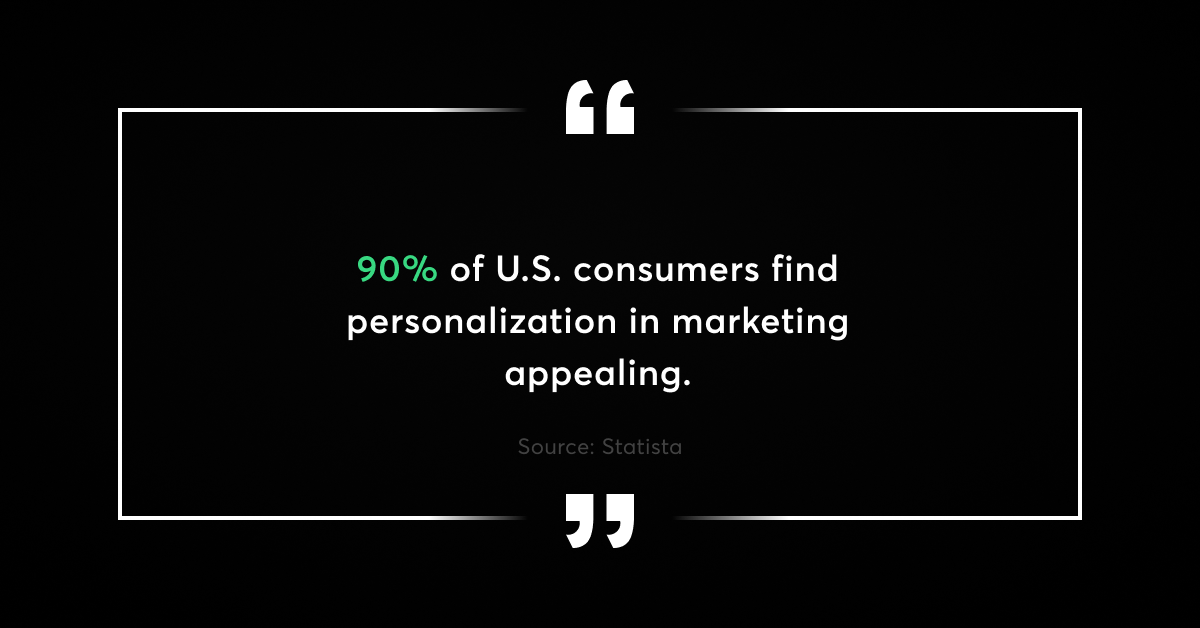
In this data-driven world, data is the new fuel for eCommerce businesses. The more you know about your customers, the better chances you have to sell to them. As discussed, a mobile app lets you collect an array of customer data, ranging from age and location to shopping history and preferences.
Such data allows you to understand your customers better. When that happens, you can formulate a more informed marketing strategy, which results in more sales and revenue. Additionally, knowing your customers well also enables you to forecast new trends and changes in demand to provide a personalized experience.
8. Cost-Reduction and Productivity
Investing in mCommerce app development can help you reduce marketing and operational expenses in the long run. eCommerce businesses have to run large-scale marketing campaigns that go beyond digital media. The costs of traditional advertising, such as newspaper ads, brochures, billboards, etc., can pile up and skyrocket your marketing costs.
A mobile commerce app goes a long way in cutting down marketing expenses. You don’t need to spend your money on SMS messages, email campaigns, and other traditional advertising methods. The app allows you to reach your customers instantly without any obstruction.
Depending on the type of functionalities of your app, it can also help improve team collaboration, boost workforce efficiency, and reduce operational costs.
Benefits of mCommerce for Customers
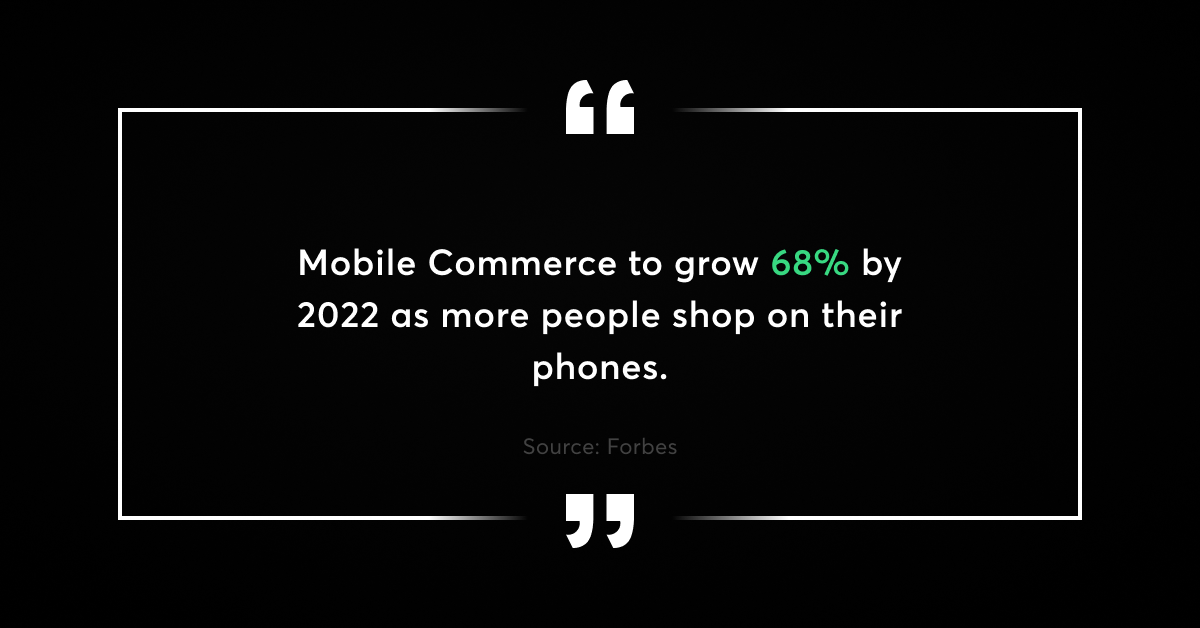
The advantages of mCommerce aren’t limited to businesses. Here’s how mCommerce apps benefit online shoppers.
1. Simplicity and Comfort
Shopping online on a mobile device is convenient and straightforward. All that customers need to do is open the mobile app, add their favorite products to the cart, and make a purchase. Mobile apps have a relatively simpler and neater interface than desktop websites, making navigation easy for customers.
2. Save Money
Most eCommerce companies want to grow their mobile side of things. To achieve that, they often run deals and discounts exclusive to mobile apps only. Therefore, mCommerce can help customers avail exciting deals and save more money.
3. Save Time
Similar to eCommerce, mCommerce helps customers save time. They don’t need to go inside a store to purchase products. They don’t even need to turn on their laptop or PC. They can simply pull out their phone and start buying.
4. Enjoy Personalized Recommendations
Mobile apps excel when it comes to delivering personalized recommendations. Users can provide information about their choices and preferences and enjoy the relevant products.
5. Multiple Payment Options
Customers now expect numerous payment options. The use of cash has gone obsolete, and e-wallets like Apple Pay and Google Pay have taken over credit/debit cards. Since people have these e-wallet apps installed on their smartphones, mCommerce allows them to pay for their purchases using these methods.
Must-Have Features of Retail Apps

If you’re planning mCommerce app development, selecting the right features is critical. Let’s look at some must-have features in your mobile retail app.
1. Quick Registration Process
First things first, every mobile retail app should offer a seamless registration process. Users should be able to sign up quickly by providing basic information, such as name, and email address. It’s even better if your app integrates social networks and allows users to sign up using Facebook.
2. Personalized Experience
As mentioned earlier, mobile apps offer massive scope for personalization. Make sure to incorporate personalization functionalities in your app. The app should automatically collect and store data on a user’s purchase history and behavior.
Based on the collected data, the app should provide personalized product and content recommendations to the users. When you deliver a personalized experience, the users come across relevant product suggestions every time they open the app. This boosts customer experience and increases the chances of a sale.
3. Push Notifications
Push notifications are a critical aspect of mCommerce app that every business should focus on. With app notifications, you can reach your customers promptly and send them new deals, offers, and announcements. Moreover, the high engagement and app retention rates associated with push notifications can help you boost sales and profits.
4. Wishlist Facility
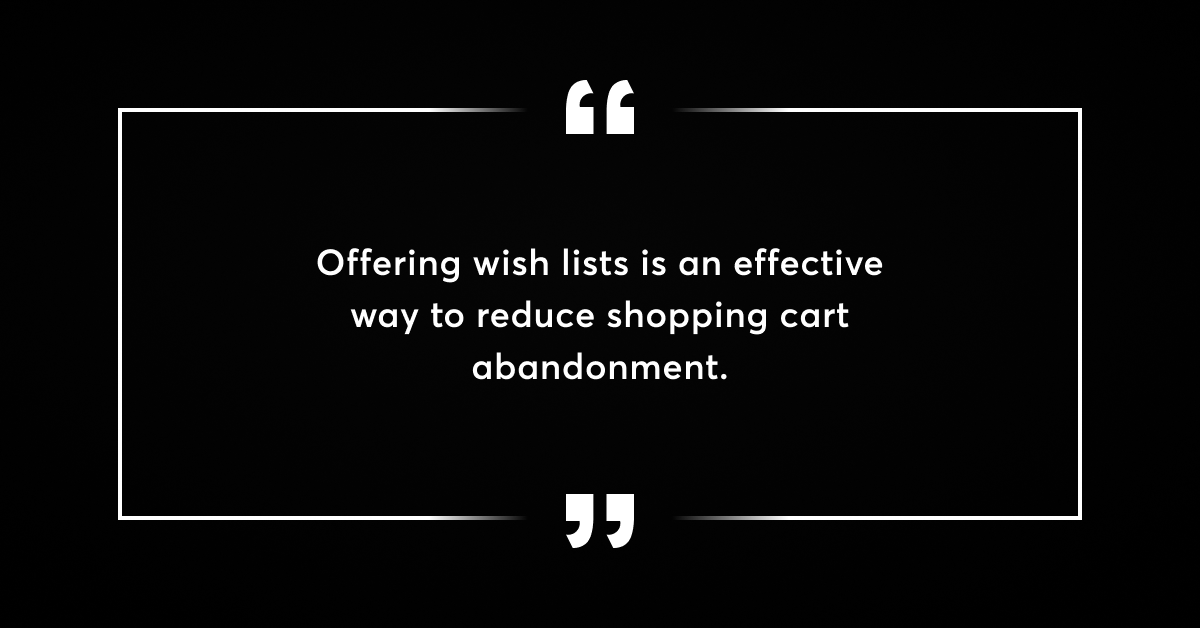
92% of customers visit a brand’s website for reasons other than making a purchase. While the figure may be slightly different for mobile apps, it’s improbable that a customer who’s opened your app for the first time will make a purchase.
But if they like some products, they’ll definitely want to add them to the wishlist and come back to buy them later. Thus, having a wishlist facility is a must in every mCommerce app. Your customers should be able to add products to the list with a single click. Also, the app should allow them to seamlessly transfer products from the wishlist to the cart.
5. Track and Show Inventory
Businesses worldwide lose big chunks of money every year due to inventory distortion. One of the reasons shoppers prefer physical retail is that they can get a real-time view of inventory status. Incorporating the same functionality into your mCommerce app can go a long way in boosting customer management.
Link your mobile app with inventory so that the users can know the real-time availability status of the product. The app should showcase if a product is “available,” “out of stock,” “being sold quickly,” or if a specific number of units are left. This information will give the customer a clear idea of the inventory and help them make informed purchase decisions.
6. Up-Sell and Cross-Sell Possibilities
Up-selling and cross-selling help you sell more products and generate greater profits. Since your mobile app will act as an automated sales machine for your business, be sure to incorporate up-selling and cross-capabilities into it.
When a user adds items to the cart, the app should automatically suggest complementary items. For example, if a shopper buys earphones, the app should automatically recommend a case for those earphones or any other related item.
7. Easy Checkout
Lastly, your mobile app developers should focus on including seamless checkout functionality in your mCommerce app. Nowadays, customers expect companies to accept payment using multiple methods, ranging from credit/debit cards to e-wallets and beyond. Ensure that your app supports all the popular payment options in your area.
Mobile App Development Possibilities
Having discussed the importance and benefits of mCommerce for businesses and customers, let’s take a deep dive into the best mCommerce app development possibilities.
1. Native App Development
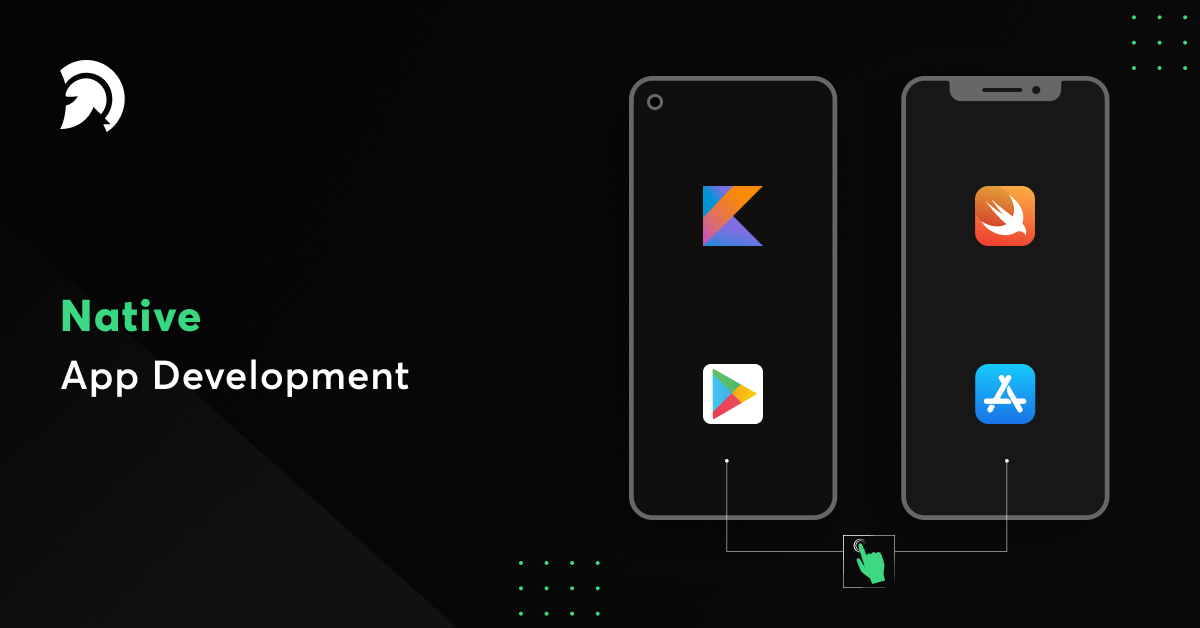
Native app development refers to building mobile apps for a single platform, such as iOS, Android, Windows, etc. The app is developed using frameworks and programming languages specific to a platform. A native app built for iOS won’t work on Android and vice versa.
Some reasons why you should opt for native app development are as follows:
- Best Performance: Of all application types, native apps have the best performance. Since these apps are built and optimized for a specific platform, the app demonstrates a high level of performance.
- More Secure: Native apps rely on platform-specific technologies, which guarantee superior security and data protection.
- More intuitive and Interactive: Since native apps are built for specific platforms, they are more intuitive and smoother, thereby resulting in an excellent customer experience.
- Fewer Bugs: When compared with other types of apps, native apps are known to have fewer bugs and errors.
Since customer experience has become the main priority for app users, the demand for native apps will never plunge. Companies that want to deliver bug-free, high-performance apps should stick to native app development.
2. Cross-Platform App Development
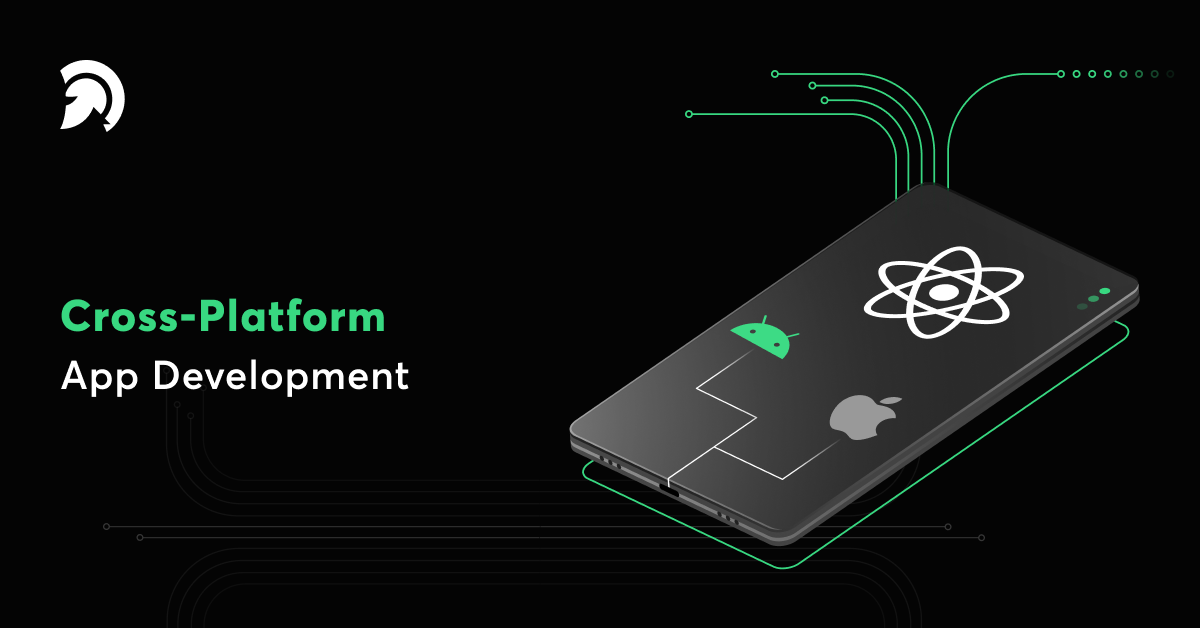
Cross-platform app development refers to developing a mobile app for multiple platforms simultaneously instead of building apps for specific platforms. These apps are created using a cross-platform framework like React Native.
Here’s why you should invest in cross-platform mobile app development.
- Reusable Code: You don’t need to write fresh codes for every platform. In cross-platform app development, developers can resume the same code for developing apps across multiple platforms.
- Reduced Costs: Since the code is reusable, companies don’t need to hire multiple developers. This helps save time and resources.
- Quicker Development: The app development process is much faster when developing a cross-platform app. The quicker development speed provides much more time to market and helps you get your product in front of your customers earlier in comparison to native app development.
- Seamless Implementation: Cross-platform apps are easier to implement. Furthermore, technologies like React Native allow developers to deploy apps and make changes on the go.
The scope for cross-platform (hybrid) app development is massive. It helps companies reuse the code, which allows them to reduce costs, save time, and release the product quickly. Many big players like Google and Facebook are investing in cross-platform app development.
3. Progressive Web App Development
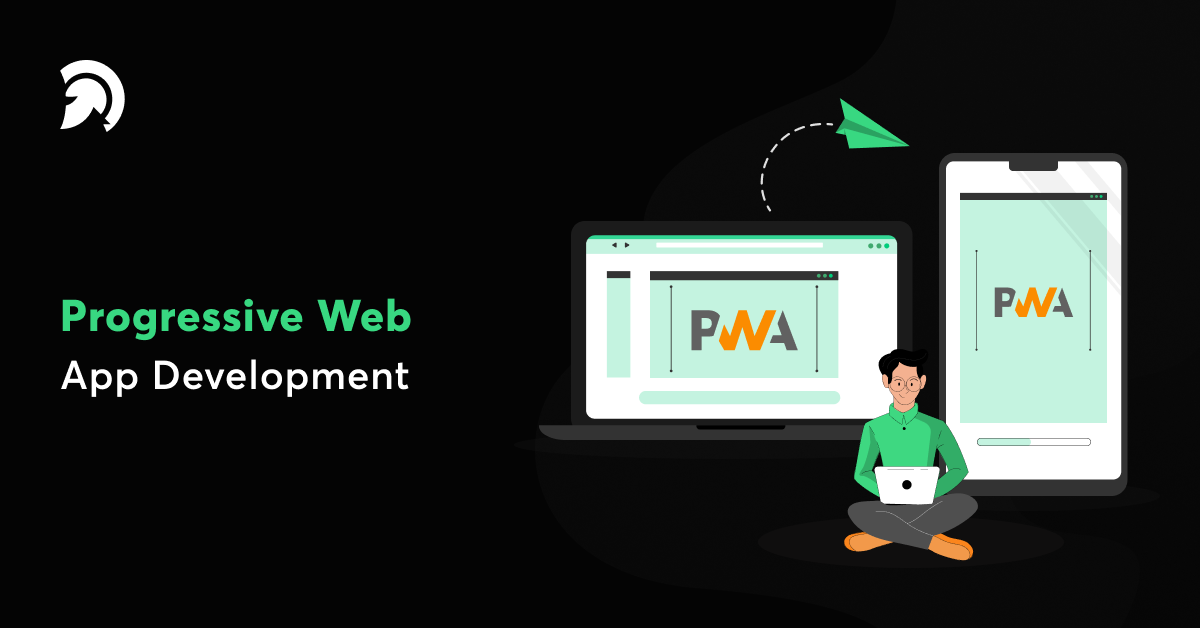
Progressive web app (PWA) development focuses on developing web apps that use web browser APIs and features to deliver a native app-like experience to web apps across platforms. Simply put, these apps offer a mobile app-like experience on a web browser.
Key reasons to invest in progressive web app development are as follows:
- Mobile First: PWAs allow companies to create and deliver better mobile experiences on browsers.
- Native-Like Experience: These apps are designed to look and behave like native apps.
- No Store Needed: Since PWAs run on browsers, you don’t need them to register on app stores.
- Cost-Effective: PWAs are significantly inexpensive. They’re cheaper to develop than native and cross-platform apps.
Wrapping Up
As mobile commerce continues to grow, mCommerce app development has emerged as one of the hottest trends in 2021. Businesses need to invest in mCommerce apps to cater to the changing needs of customers and establish themselves as industry leaders.
Ready to start with mCommerce? Get in touch with EvinceDev now.





